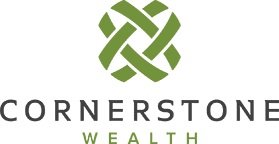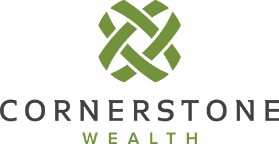The Hidden Financial Benefits of Choosing an ESOP for Your Company
Discovering Strategic Small Business Retirement Plans
Navigating the path to a successful business transition is one of the most critical—and often overlooked—challenges that business owners face. Amid the demands of daily operations, it’s easy for small business retirement plans and long-term succession strategies to take a back seat.
Yet, planning for the future is fundamental to safeguarding the legacy you’ve built.
Exploring innovative solutions, such as an Employee Stock Ownership Plan (ESOP), is a step toward creating lasting value for your company, your employees, and your peace of mind.
Understanding the Employee Stock Ownership Plan (ESOP) Advantage
Why ESOPs Stand Out Among Small Business Retirement Plans
For business owners seeking a powerful combination of succession planning, equity compensation, and long-term wealth strategies, the Employee Stock Purchase Plan (ESPP) combined with the Employee Stock Ownership Plan (ESOP) stands out among retirement plans.
An ESOP is a qualified retirement plan that enables employees to become part-owners of the business through stock ownership, transforming team members into vested participants in the company’s ongoing success.
The ESOP concept is steadily gaining traction; there are now over 7,000 ESOPs in the United States, covering more than 14 million employees.
For business owners, ESOPs offer a unique way to achieve both personal and company goals.
They provide a smart path to succession while offering job security and profit-sharing opportunities for employees, helping to preserve and strengthen your business legacy.
Unveiling the Financial Benefits of Employee Stock Ownership Plans
Employee Stock Ownership Plan Tax Benefits
One of the most compelling reasons to consider ESOPs is the potential for significant tax advantages for business owners and increased financial security.
When selling to an ESOP:
Owners can benefit from Section 1042 rollover provisions, potentially deferring or avoiding capital gains taxes if proceeds are reinvested in qualified assets.
For the company, contributions to the ESOP—whether used to buy shares or repay ESOP acquisition loans—are tax-deductible.
The benefits are even more striking for S-Corporation ESOPs. In these structures, the percentage of company ownership held by the ESOP is exempt from federal income tax.
For businesses that are 100% employee-owned through an S-Corp ESOP, this can eliminate federal tax liability, opening doors to more reinvestment and growth.
Employee Stock Ownership Plan Tax Treatment in Business Transition Planning
Beyond immediate tax savings, ESOPs provide a flexible and often less disruptive approach to the business transition and the distribution of shares process. Unlike a traditional sale, an ESOP allows owners to phase their exit while ensuring qualified exit planning advisors can help design a path that best serves the owner’s financial and legacy objectives.
These tailored options often result in smoother transitions and more favorable economic outcomes for all stakeholders involved.
Owners who plan strategically can structure their transition to maximize the benefits of employee stock ownership plan tax treatment, preserving their wealth and profit while increasing company stability.
How Employee Stock Ownership Plans Strengthen Small Business Financial Planning
The Link Between ESOPs and Improved Business Management
Choosing an employee stock ownership plan doesn’t just offer benefits at the leadership level; it can have a profound impact on a company’s operational performance.
Studies show that companies with ESOPs experience:
Measurable productivity improvements, increasing by 4–5% on average.
Faster growth; a recent study found these businesses outpace conventional firms in both sales and employee headcount by 2.3% per year.
These outstanding results underscore why many forward-thinking business management firms recommend ESOPs as a robust part of a long-term growth strategy.
Engaged Employees and Long-Term Value
The advantages of ESOPs also extend to employee satisfaction, job security, and retention, fostering a workforce where employees feel valued and invested in the company's success. Businesses with an ESOP structure report 50% lower employee turnover compared to traditional companies—a testament to the power of shared ownership and engagement.
Moreover, ESOP participants accumulate retirement accounts that are, on average, 2.5 times larger than those held by employees in non-ESOP companies.
In challenging economic periods, ESOP-owned businesses also demonstrate superior resilience and enhanced job security, with a 25% higher likelihood to remain in business compared to their peers.
The Benefits of an Employee Stock Ownership Plan in Succession Planning
ESOPs vs. Other Business Transition Planning Options
Transitioning out of your business is a significant milestone, especially for family-owned companies or entrepreneurs who have dedicated decades to their enterprise.
For owners weighing their options—whether selling to an outside buyer, passing the business to the next generation, or pursuing a merger—an employee stock ownership plan is becoming a leading strategy for business transition planning.
Unlike traditional sales, ESOPs allow business owners to exit gradually.
This flexibility is significant for those seeking a seamless transfer of management and values, while ensuring financial security.
ESOPs Preserve Legacy and Community
One of the most overlooked benefits of an ESOP or ESpp is its power to safeguard your business’s culture and community impact. By selling to an ESOP, owners can help ensure the company remains local and its unique identity is preserved.
Research shows ESOP-owned companies are 25% more likely to stay in business during economic downturns, offering greater stability for employees and their families.
“For many business owners, transitioning out of a company isn’t just about the sale price—it’s about protecting what you’ve built, taking care of your people, and preserving your legacy. An ESOP can offer a strategic way to accomplish all three, with the added benefit of powerful tax advantages and long-term flexibility.”
— Rich Fallon, Wealth Advisor at Cornerstone Wealth
Empowering Business Owners—Control, Flexibility, and Financial Confidence
Gradual Transitions and Owner Involvement
One of the most appealing features of an employee stock ownership plan for business owners is the ability to design a gradual transition.
Unlike an external sale that typically demands a complete and immediate exit, an ESOP allows you to sell your ownership shares in phases, retaining a role in company leadership or decision-making for as long as you choose.
This phased approach provides financial confidence, enhances job security, and lets you impart your knowledge and values to the next generation of leaders.
Protecting Company Values and Community Involvement
Beyond the numbers, ESOPs support the continuity of a company’s core mission, values, and commitment to the community.
Research has shown that both ESOP and ESPP-owned firms are more likely to retain jobs locally and maintain their unique company culture, even during economic downturns.
Navigating the Business Transition Process with Expert Support
The Role of a Financial Advisor for Small Business Owners
Embarking on a transition to an employee stock ownership plan is a significant financial and strategic event.
Partnering with a financial advisor for business owners or a certified exit planning advisor ensures that the transaction is structured to maximize tax efficiency, owner flexibility, and long-term business health.
These professionals assist owners in evaluating ESOP benefits, regulatory guidance, and developing a clear roadmap for a successful transition.
Building a Team: Business Management Firms, Attorneys, and ESOP Advisors
Comprehensive business transition planning involves more than just setting up the ESOP structure; it requires a thorough understanding of vesting procedures to ensure equitable employee ownership.
It requires the collaborative expertise of business management firms, legal counsel, and third-party administrators, each contributing to due diligence, funding strategies, and compliance.
Next Steps in Small Business Financial Planning: Consult a Trusted Financial Advisor
An employee stock ownership plan can create lasting advantages, including tax efficiency, business resilience, and a secure path for succession.
With guidance from a trusted financial advisor for small business owners, you can explore whether an ESOP fits your goals and legacy vision.
Ready to take the next step in your business transition planning?
Schedule a confidential consultation and unlock new possibilities for your company, your team, and your future.
This is for informational purposes only and does not serve as personal advice. Please speak to a qualified representative regarding your unique circumstances. Links within this blog are not associated to Cornerstone Wealth and are subject to change. Hyperlinks will take you to a third-party website whose content Cornerstone Wealth does not control. Investment advisory services offered through Cornerstone Wealth Group, LLC dba Cornerstone Wealth, an SEC registered investment adviser.



